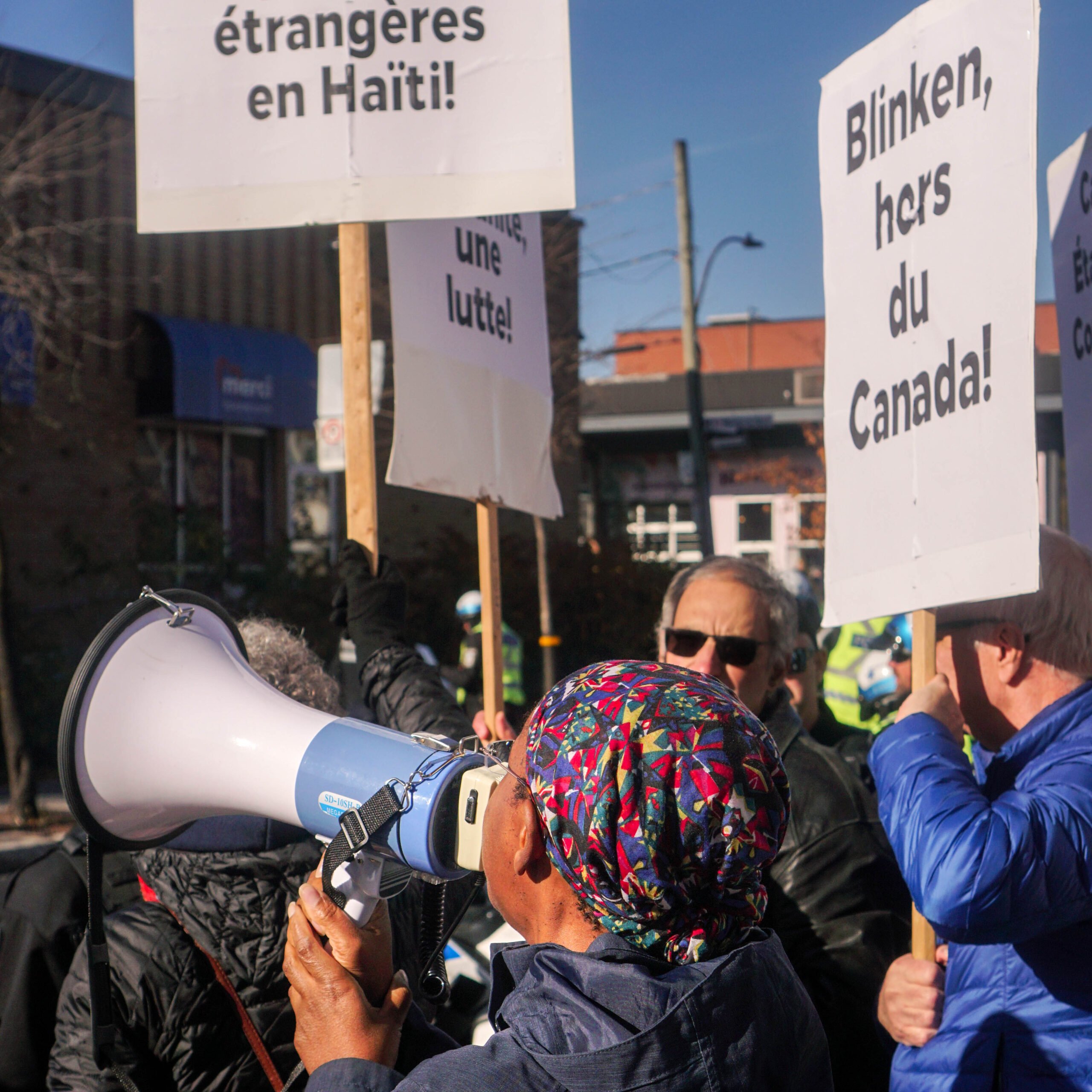US Secretary of State Anthony Blinken visited Canada late October to meet with Prime Minister Justin Trudeau and Foreign Affairs Minister Melanie Joly. The goal of the visit was “to address shared goals, including providing continued support for Ukraine, and addressing the humanitarian crisis in Haiti…”.
On his visit with Joly to Jean-Talon Market in Montreal, the two were confronted by protesters denouncing Canadian and U.S. intervention in Haiti and calling for the withdrawal of the CORE Group—a foreign body in Haiti headed by ambassadors from Canada, U.S., France, Spain, Brazil, Germany, EU, and the UN. North Star spoke with Frantz Andre of Solidarité-Quebec-Haiti who was present at the demonstration.
A day after Blinken’s visit on October 27, Joly announced that the Canadian government will be conducting an assessment mission in Haiti to evaluate “options to support Haitian people in resolving the humanitarian and security crises and how Canada can contribute to the international response.”
A main reason that Canada is citing as justification for this mission is the rampant gang war on the Island. While there is a very real presence of gangs on the island, the media narrative in many CORE Group countries lumps the popular rebellion against foreign intervention in with the societal disruption caused by gangs. North Star was present at another protest in Montreal which rallied in solidarity with these demonstrations, we spoke to Amalik Makandal about CORE Group’s role within all of this.
On October 15, Canada and the U.S. sent armoured vehicles to the Haitian National Police at the request of Ariel Henry, who the CORE Group propped up to become Prime Minister when former PM Jovenel Moise was assassinated in 2021. This was the first step in what many Haitians are seeing as yet another Canadian/foreign military intervention in Haiti. North Star spoke to Jafrikayiti, member of Solidarité-Quebec-Haiti, about Canada’s primary role in the 2004 Haitian coup d’Etat.
Yet again, decisions about the fate of Haiti are being made behind closed doors, and from outside of the country. And yet again, the Haitian people and their supporters in Canada and around the globe continue to struggle against foreign impositions.


Be part of the conversation!
Only subscribers can comment. Subscribe to The North Star to join the conversation under our articles with our journalists and fellow community members. If you’re already subscribed, log in.